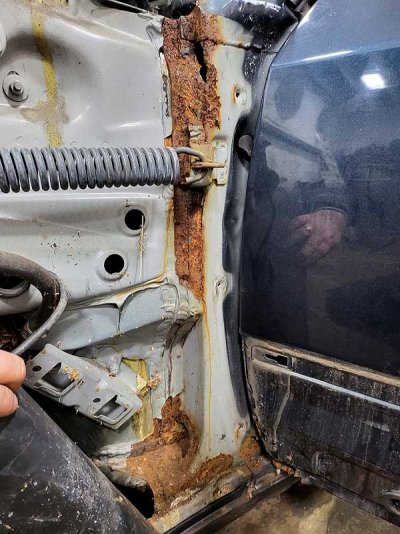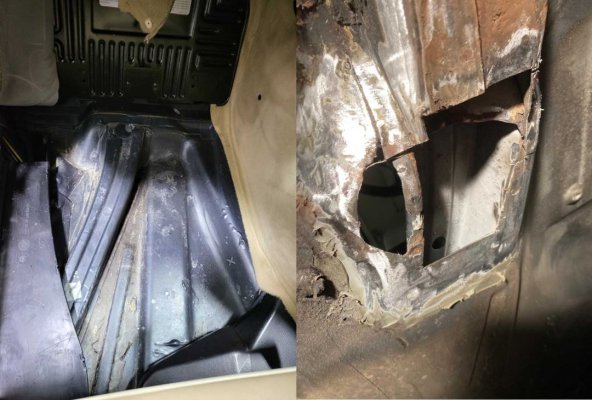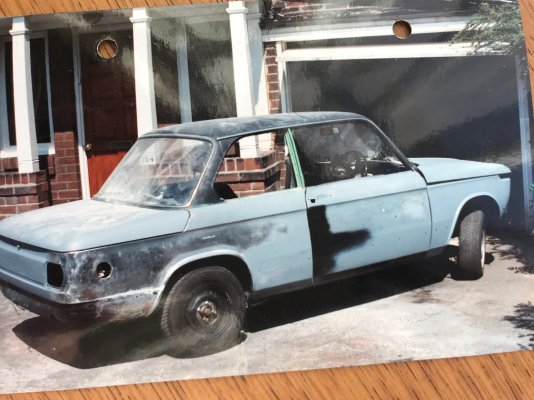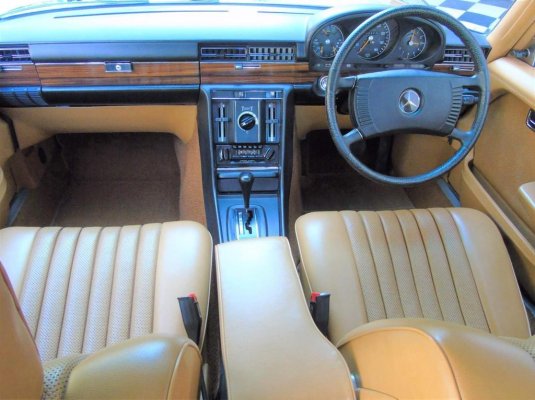A lot of excitable views expressed over the last 20 odd posts - so I can't be ****d quoting them all.
An MOT confirms that on the day, the car is deemed safe and roadworthy. Rubbish!
Old classic cars need not be MOTd as they are seldom used and owned by knowledgeable enthusiasts. Rubbish.
The quality of an MOT is entirely down to the tester's knowledge, his mood, and if he had his Weetabix that morning.
Browse through my C124's history (JSG818) yards of advisories and many fails. But drill down...
Fail - headlamps too high, headlamps too low. Around 3k miles between them and they had never been used.
Fail - several times - front seats don't lock. Tester ignorant of vacuum locking system.
Fail - several times - broken springs. This is a good thing as many owners would be unaware.
Advisories - corroded brake or fuel lines are mentioned randomly as they seem to come and go.
Other advisories are so trivial that perhaps the tester just had time on his hands.
Now, as many know, I lashed out on a £20k restoration of the coupe. It looked pretty good and shiny but when the boys got stuck in they found the A-post so corroded that the car would have folded up like a wet cardboard box.

No MOT would have found that in a million years.
At the time, I specifically asked if the floorpan was OK and was assured it was...
Last year I submitted the car for an MOT and the enthusiastic tester stuck his screwdriver through a chassis leg. Completely invisible through layers of underseal - so that MOT was worth it!

You will see that I presently have a clean MOT with no advisories!
Overall, of course, we need a formal annual check on a vehicle's roadworthiness, but it is such an imperfect system. Even on this Forum, members crow that their car passed with no advisories forgetting it was solely down to the opinion of some joker at that particular time and day.





